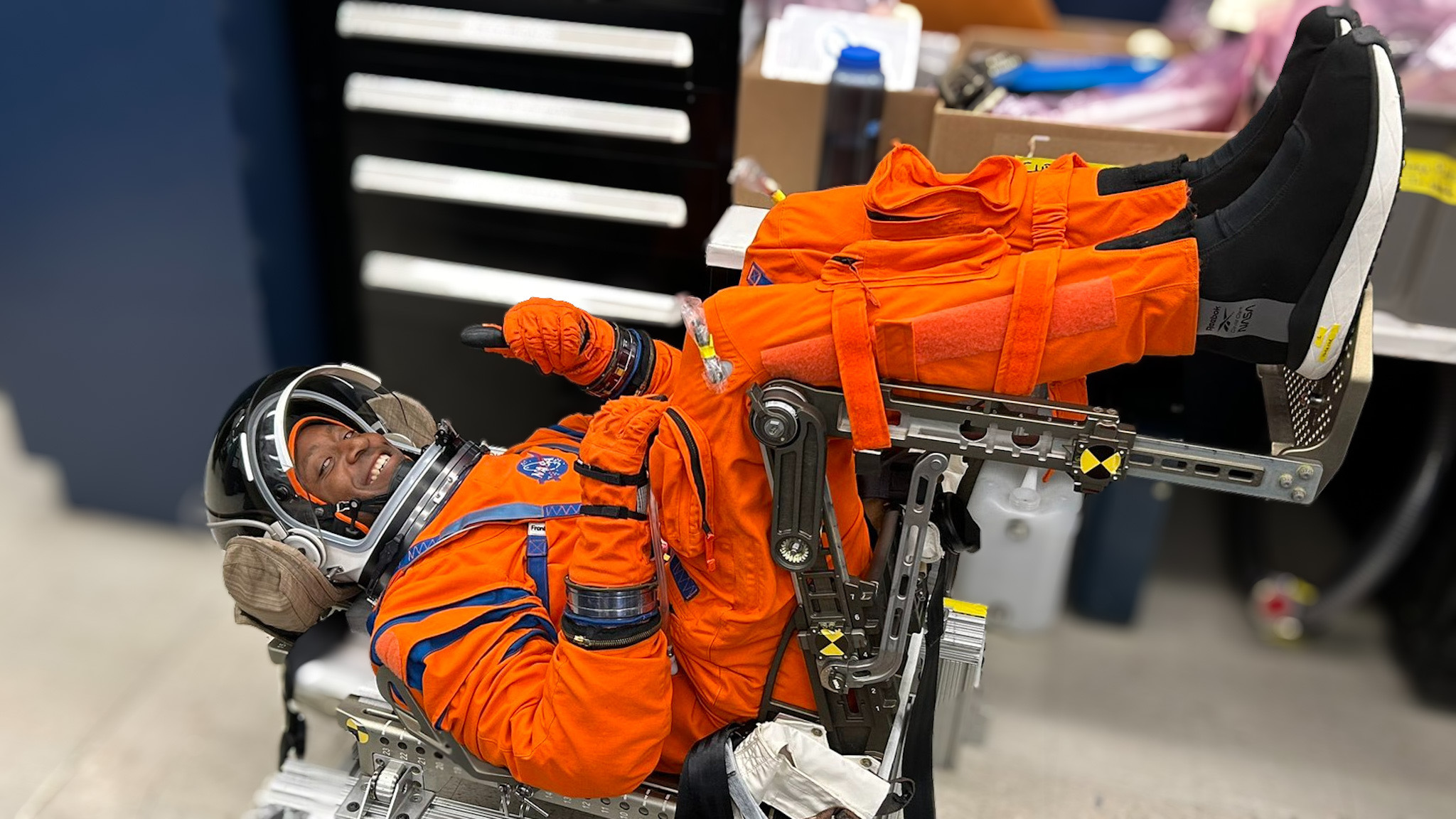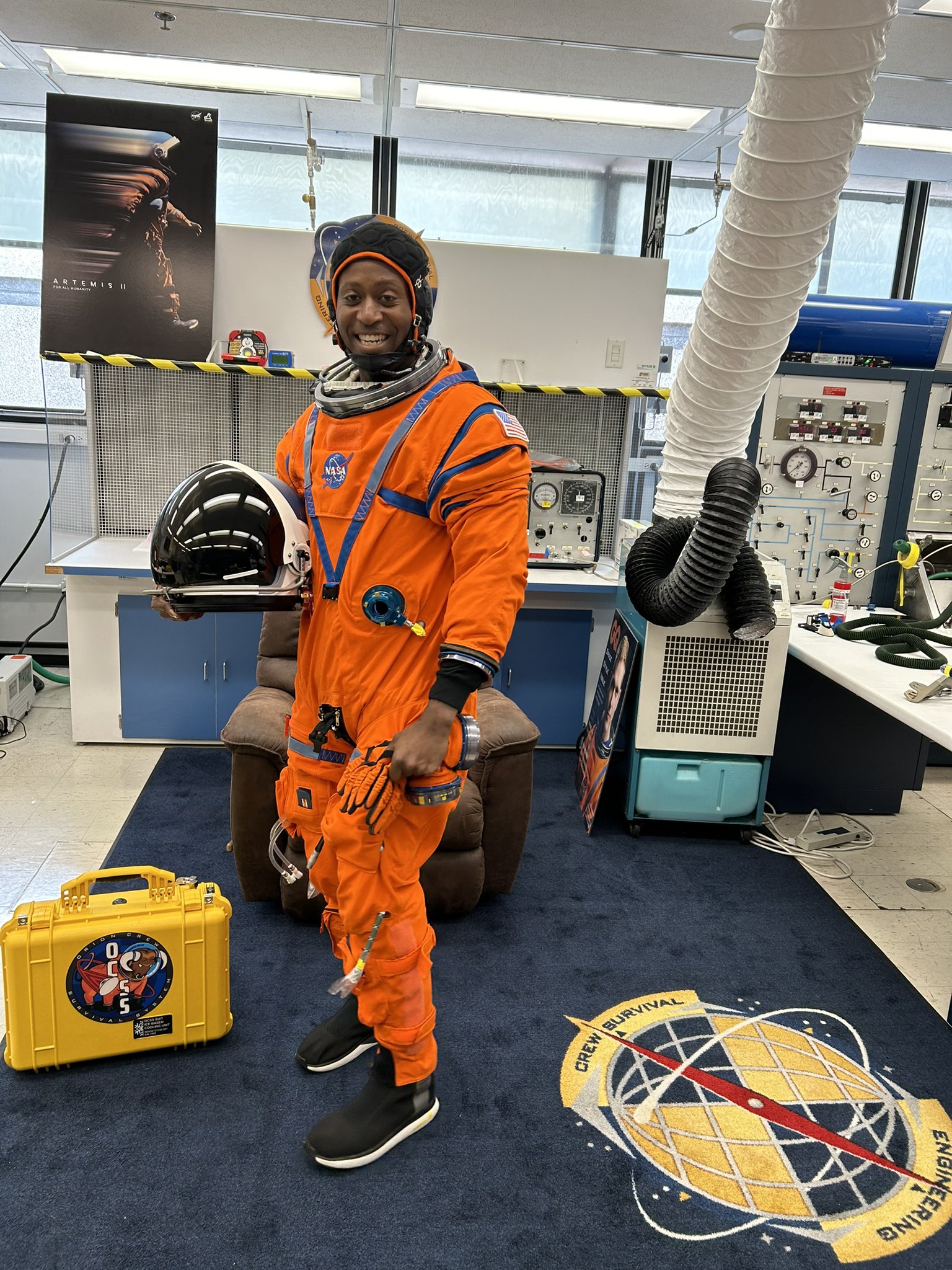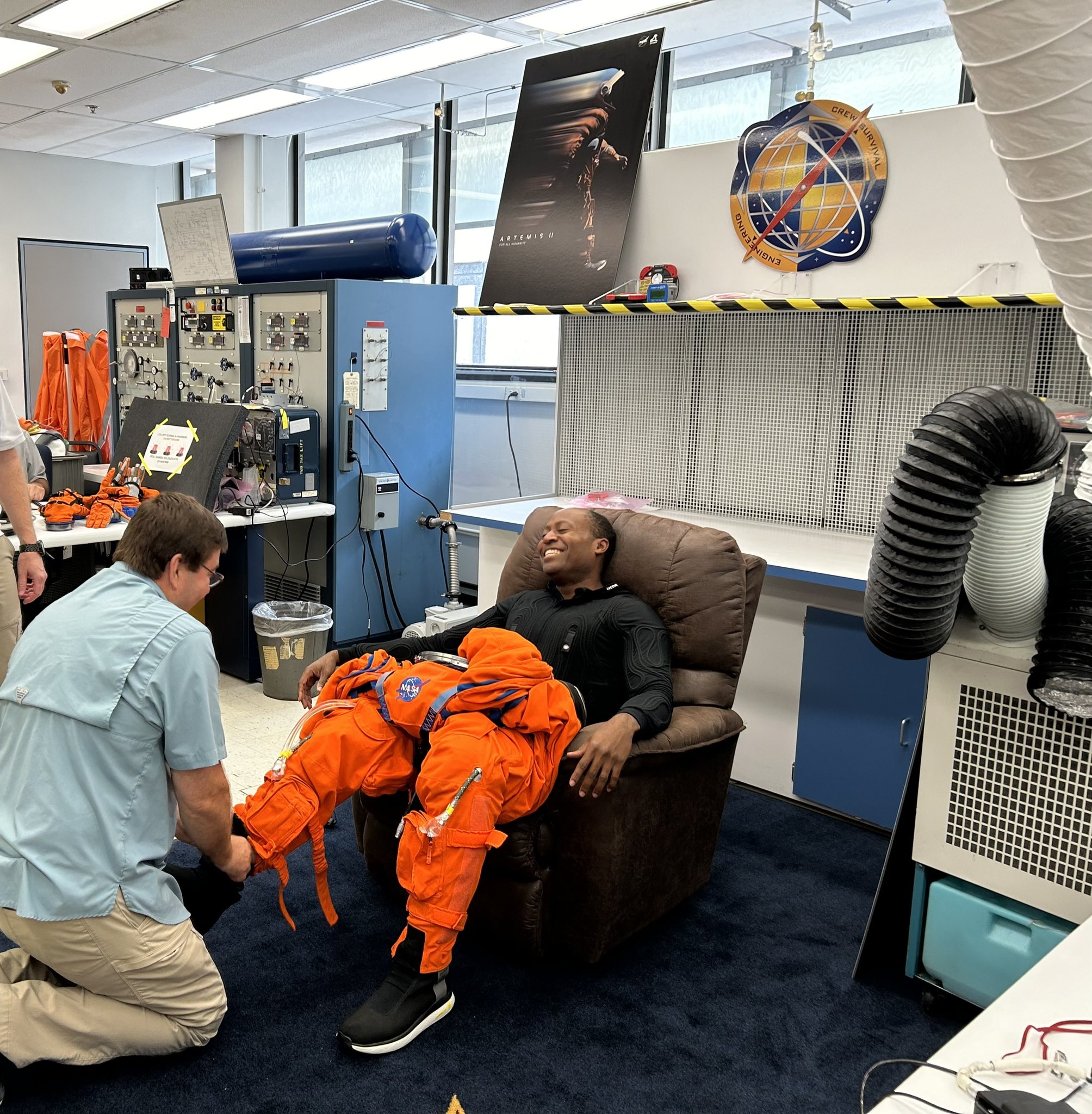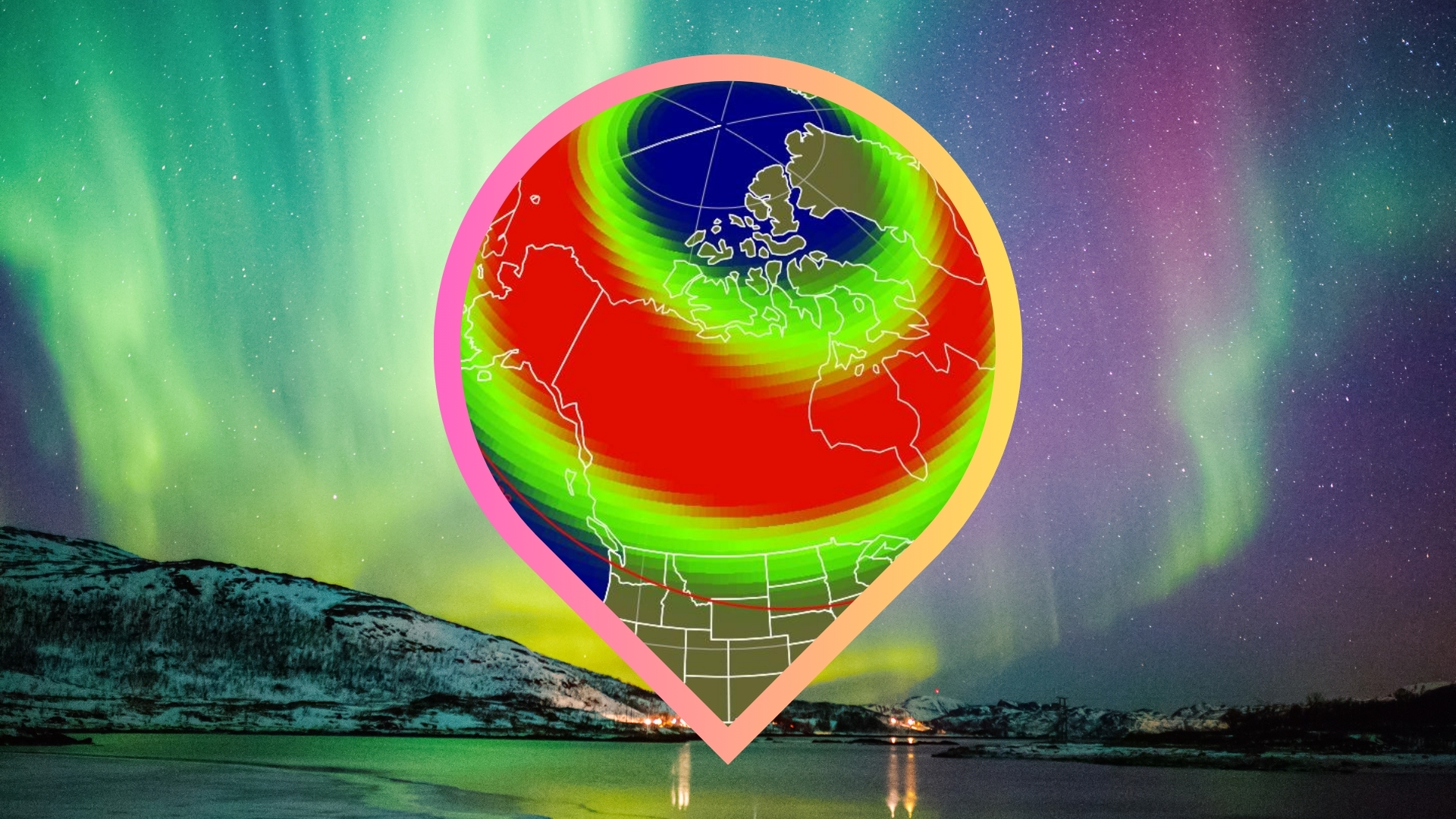Snazzy spacesuit! Artemis 2 moon mission backup astronaut Andre Douglas tries on his lunar duds (photos)
The NASA astronaut is wrapped in orange for the 2025 mission.

An astronaut assigned to back up a historic moon mission was seeing orange last week.
NASA astronaut Andre Douglas, recently named backup for the Artemis 2 round-the-moon flight scheduled for 2025, finished a standard spacesuit fit check in the agency's orange outfit. Then he posted how it looked in different positions on X, formerly Twitter.
"Excited for a suit fit check in preparation for Artemis 2 back up mission," Douglas wrote on Friday (July 12), alongside pictures of him grinning inside the spacesuit.
Douglas is serving as backup for the three U.S. astronauts on the flight: commander Reid Wiseman, pilot Victor Glover and mission specialist Christina Koch. (Another mission specialist, Jeremy Hansen, is backed up by fellow Canadian Space Agency astronaut Jenni Gibbons.)
Artemis 2 will be the first moon mission with astronauts on board since the landing of Apollo 17 in 1972. It will also feature the diverse and international nature of the Artemis program and the Artemis Accords under which dozens of space agencies are participating, although only a subset have committed to providing lunar hardware in exchange for astronaut seats and science.
If the prime crew flies as planned, Koch will be the first woman to leave low Earth orbit, while Glover will be the first Black astronaut and Hansen the first non-American to do so. Similarly diverse crews are planned for future missions of the Artemis program, which plans to land astronauts on the moon as soon as 2025 with Artemis 3.
Breaking space news, the latest updates on rocket launches, skywatching events and more!
Douglas was named to the mission last month following a career in the U.S. Coast Guard and also the Johns Hopkins University Applied Physics Lab (APL), where he served on spacecraft missions such as the asteroid-slamming Double Asteroid Redirection Test (DART). He was selected as a NASA astronaut in 2021 and passed his basic training in March 2024. Weeks later, Douglas performed moonwalking simulations using spacesuit prototypes at the San Francisco Volcanic Field near Flagstaff, Arizona.
Artemis 2 was initially set for a December 2024 launch, but that launch was delayed by nine months for additional examination and testing of several spacecraft systems, including the heat shield.
Three prime crew members (Koch was not available) told Space.com in May that, as a developmental mission, Artemis 2 was not expected to keep to a schedule. Rather, the mission changes scope and direction as new things are learned.
"When you build a new vehicle, it doesn't matter how many requirements you set and how many qualification programs you set," Wiseman, a former U.S. Navy test pilot who has experience with developmental programs in aerospace, said at the time.
"When human hands are trying to put together an incredibly complex and powerful machine," he added, "it is going to manifest in some issues. And there are going to be things you learn as you go all the way up to launch."

Elizabeth Howell (she/her), Ph.D., was a staff writer in the spaceflight channel between 2022 and 2024 specializing in Canadian space news. She was contributing writer for Space.com for 10 years from 2012 to 2024. Elizabeth's reporting includes multiple exclusives with the White House, leading world coverage about a lost-and-found space tomato on the International Space Station, witnessing five human spaceflight launches on two continents, flying parabolic, working inside a spacesuit, and participating in a simulated Mars mission. Her latest book, "Why Am I Taller?" (ECW Press, 2022) is co-written with astronaut Dave Williams.


